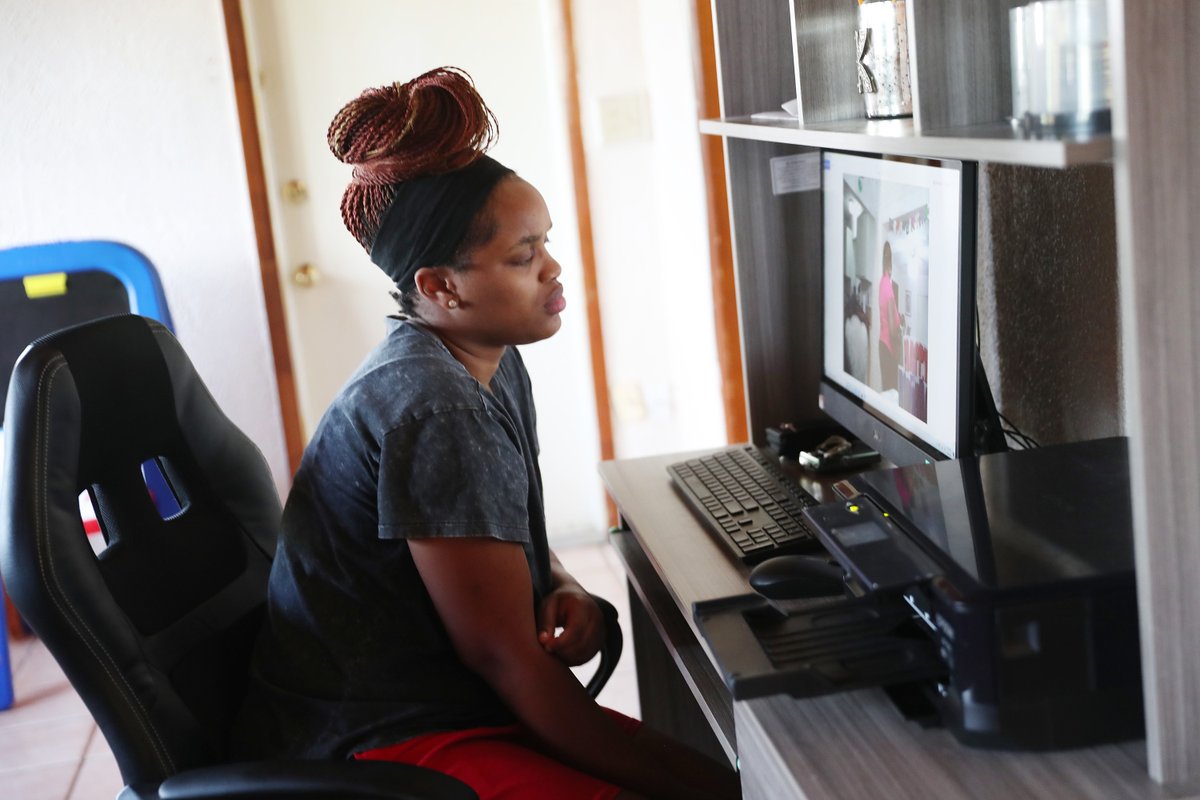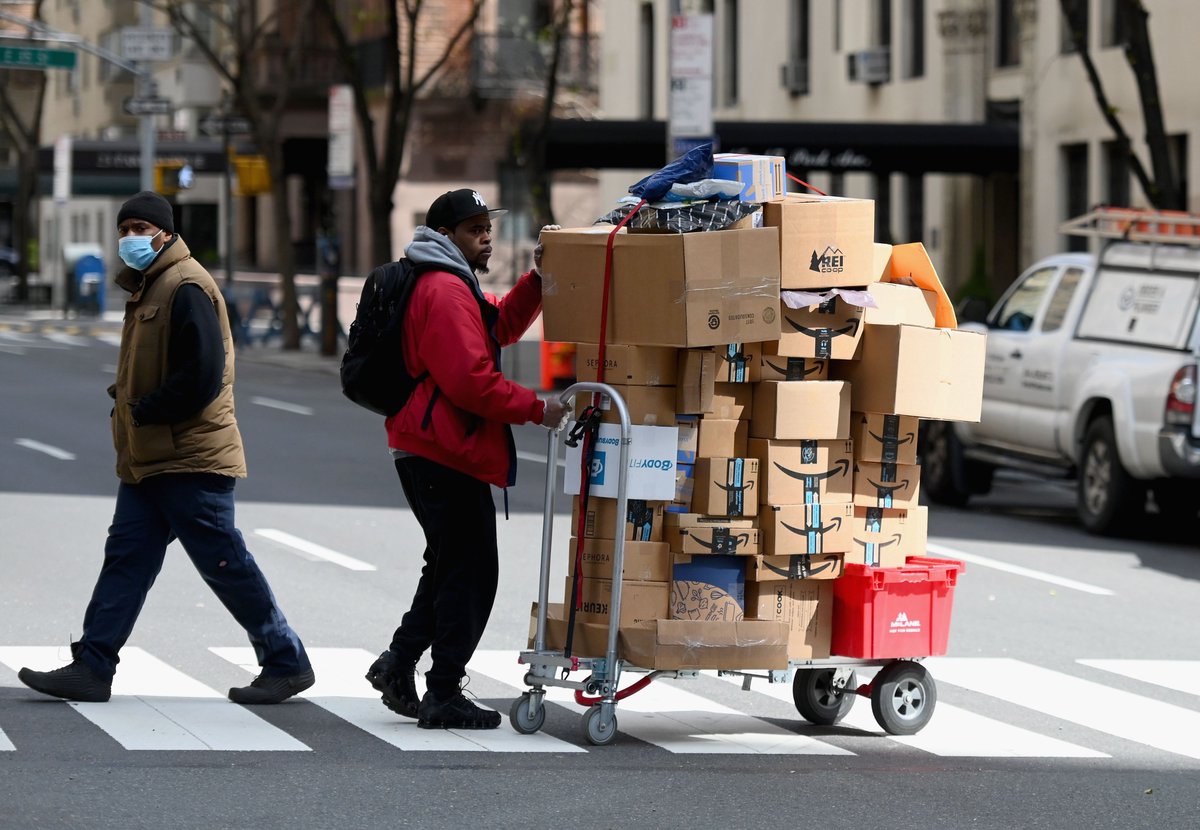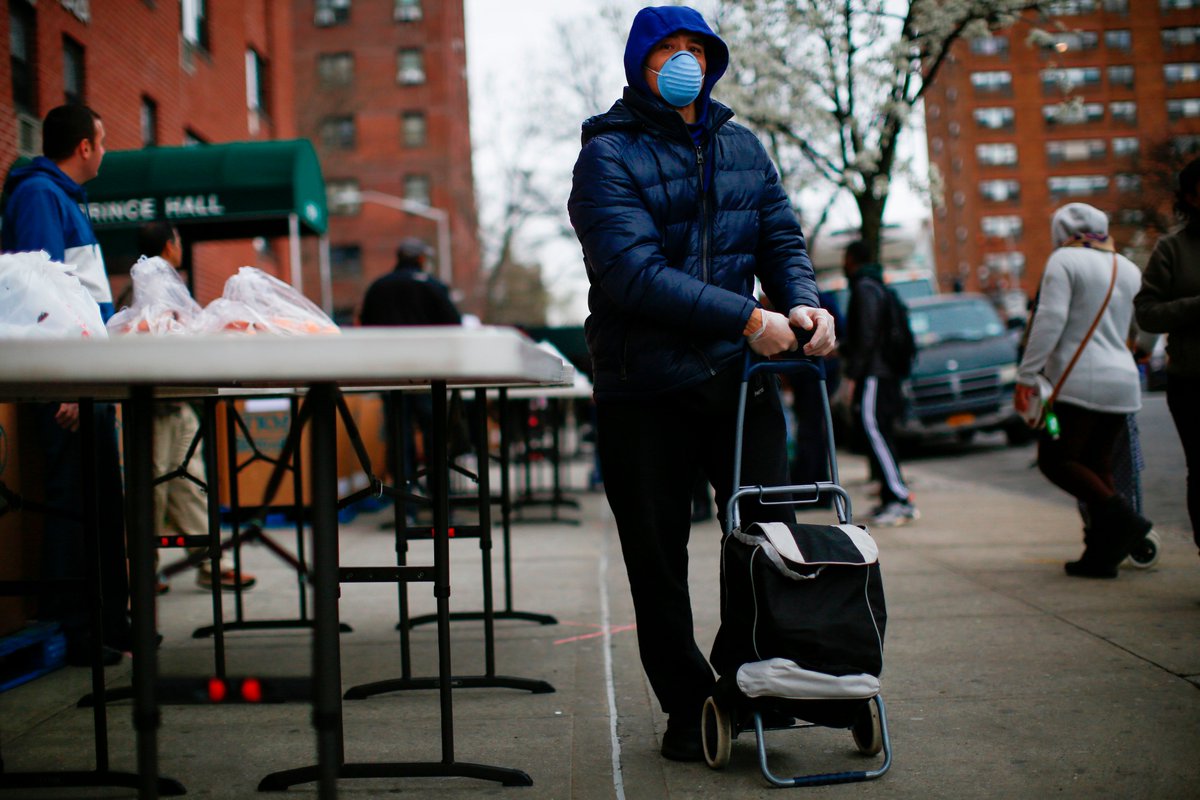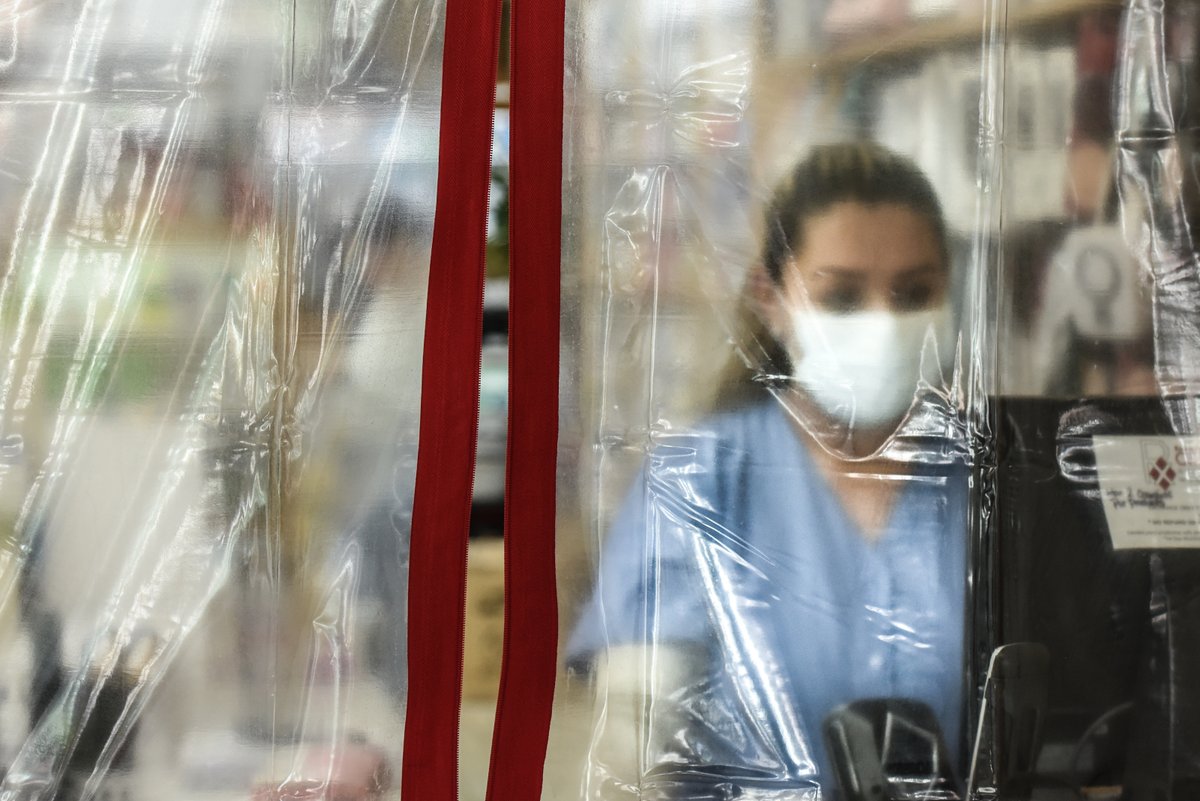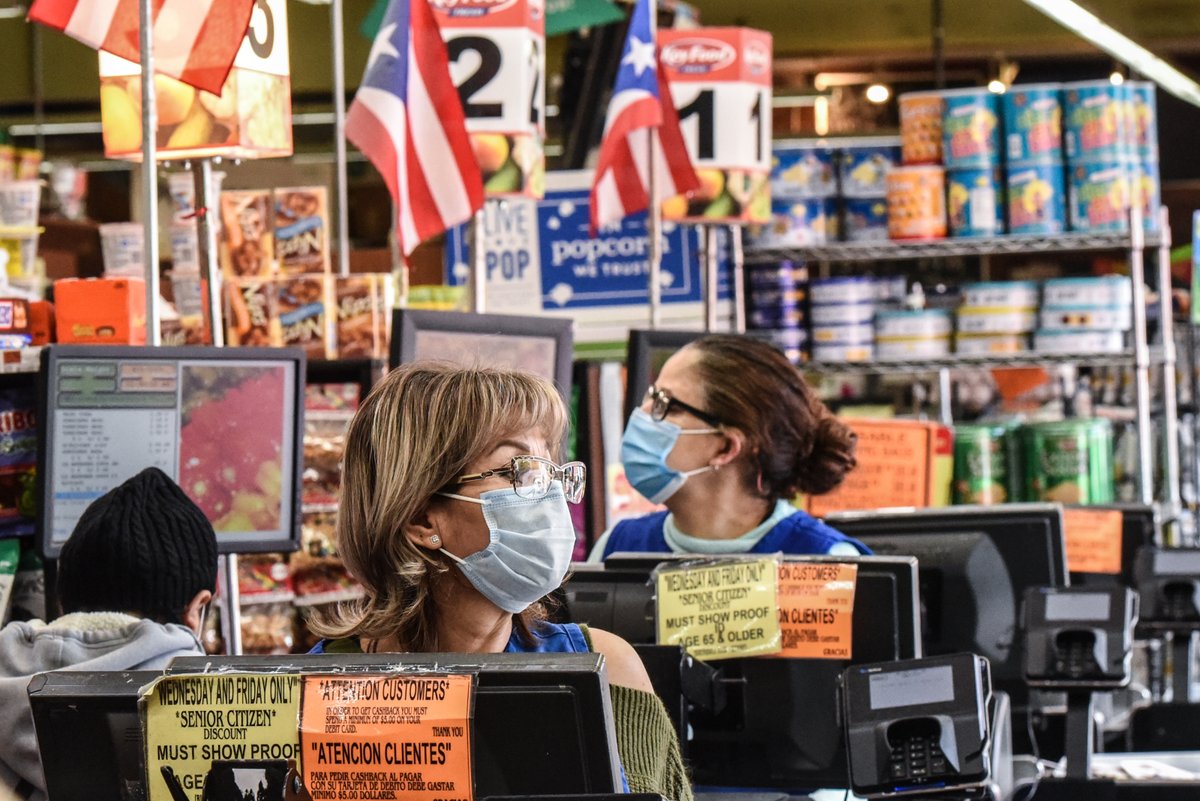The $2 trillion economic relief bill has many excellent features, but there are lingering questions about the bill’s heavy reliance on the unemployment-insurance system https://trib.al/J5bjmoU ">https://trib.al/J5bjmoU&q...
The main worry is that generous unemployment benefits will discourage work.
On top of regular benefits, the bill offers $600 a week to laid-off workers. For many low-income Americans, this would amount to more than their normal monthly income https://www.bloomberg.com/opinion/articles/2020-04-02/cororavirus-unemployment-insurance-isn-t-ideal-to-help-workers">https://www.bloomberg.com/opinion/a...
On top of regular benefits, the bill offers $600 a week to laid-off workers. For many low-income Americans, this would amount to more than their normal monthly income https://www.bloomberg.com/opinion/articles/2020-04-02/cororavirus-unemployment-insurance-isn-t-ideal-to-help-workers">https://www.bloomberg.com/opinion/a...
Does this mean that workers will quit their jobs to receive government checks instead?
Normally this isn’t an issue because only employees who are laid off qualify, not those who leave voluntarily. But the coronavirus bill makes an exception to that rule https://www.bloomberg.com/opinion/articles/2020-04-02/cororavirus-unemployment-insurance-isn-t-ideal-to-help-workers">https://www.bloomberg.com/opinion/a...
Normally this isn’t an issue because only employees who are laid off qualify, not those who leave voluntarily. But the coronavirus bill makes an exception to that rule https://www.bloomberg.com/opinion/articles/2020-04-02/cororavirus-unemployment-insurance-isn-t-ideal-to-help-workers">https://www.bloomberg.com/opinion/a...
Under the bill, people are allowed to claim a $600 weekly benefit if they have to quit for any reason related to the coronavirus, including taking care of kids during school closures https://www.bloomberg.com/opinion/articles/2020-04-02/cororavirus-unemployment-insurance-isn-t-ideal-to-help-workers">https://www.bloomberg.com/opinion/a...
Overburdened state unemployment systems probably won’t be up to verifying many of those claims.
This means some people really will be able to abandon their jobs and raise their incomes for a couple of months if they want to https://www.bloomberg.com/opinion/articles/2020-04-02/cororavirus-unemployment-insurance-isn-t-ideal-to-help-workers">https://www.bloomberg.com/opinion/a...
This means some people really will be able to abandon their jobs and raise their incomes for a couple of months if they want to https://www.bloomberg.com/opinion/articles/2020-04-02/cororavirus-unemployment-insurance-isn-t-ideal-to-help-workers">https://www.bloomberg.com/opinion/a...
Still, a wave of quits isn& #39;t much of a worry.
It’s not rational for most workers to resign in the face of a looming multiyear depression just to receive a couple of thousand dollars of extra income in the short term https://www.bloomberg.com/opinion/articles/2020-04-02/cororavirus-unemployment-insurance-isn-t-ideal-to-help-workers">https://www.bloomberg.com/opinion/a...
It’s not rational for most workers to resign in the face of a looming multiyear depression just to receive a couple of thousand dollars of extra income in the short term https://www.bloomberg.com/opinion/articles/2020-04-02/cororavirus-unemployment-insurance-isn-t-ideal-to-help-workers">https://www.bloomberg.com/opinion/a...
The problem is essential workers, such as grocery-store clerks, delivery workers and those in the medical field: If a large number quit, it could leave crucial industries short of labor https://www.bloomberg.com/opinion/articles/2020-04-02/cororavirus-unemployment-insurance-isn-t-ideal-to-help-workers">https://www.bloomberg.com/opinion/a...
Employees in critical industries deserve better treatment.
The obvious response is to raise wages. Either that, or allow laid-off workers to collect pandemic unemployment benefits in addition to salary if they go back to work in an essential industry https://www.bloomberg.com/opinion/articles/2020-04-02/cororavirus-unemployment-insurance-isn-t-ideal-to-help-workers?srnd=opinion">https://www.bloomberg.com/opinion/a...
The obvious response is to raise wages. Either that, or allow laid-off workers to collect pandemic unemployment benefits in addition to salary if they go back to work in an essential industry https://www.bloomberg.com/opinion/articles/2020-04-02/cororavirus-unemployment-insurance-isn-t-ideal-to-help-workers?srnd=opinion">https://www.bloomberg.com/opinion/a...
The bill hurts efforts to hire more help:
Workers who leave high-touch jobs in restaurants and retail have little incentive to seek new jobs in groceries and delivery since they will see their pay dramatically increase under their unemployment benefits https://www.bloomberg.com/opinion/articles/2020-04-02/essential-workers-deserve-more-pay-than-non-essential-non-workers">https://www.bloomberg.com/opinion/a...
Workers who leave high-touch jobs in restaurants and retail have little incentive to seek new jobs in groceries and delivery since they will see their pay dramatically increase under their unemployment benefits https://www.bloomberg.com/opinion/articles/2020-04-02/essential-workers-deserve-more-pay-than-non-essential-non-workers">https://www.bloomberg.com/opinion/a...
As more workers go on unemployment and see their incomes rise as a result, resentment among essential employees will grow.
Not only are they being asked to do more without the additional assistance that they need, but they face a financial disadvantage https://www.bloomberg.com/opinion/articles/2020-04-02/essential-workers-deserve-more-pay-than-non-essential-non-workers">https://www.bloomberg.com/opinion/a...
Not only are they being asked to do more without the additional assistance that they need, but they face a financial disadvantage https://www.bloomberg.com/opinion/articles/2020-04-02/essential-workers-deserve-more-pay-than-non-essential-non-workers">https://www.bloomberg.com/opinion/a...
Essential workers don’t deserve this second-rate treatment.
As the pandemic unfolds, the government is going to experience lots of unintended consequences. Legislators must constantly adapt, learn and fix holes https://www.bloomberg.com/opinion/articles/2020-04-02/essential-workers-deserve-more-pay-than-non-essential-non-workers">https://www.bloomberg.com/opinion/a...
As the pandemic unfolds, the government is going to experience lots of unintended consequences. Legislators must constantly adapt, learn and fix holes https://www.bloomberg.com/opinion/articles/2020-04-02/essential-workers-deserve-more-pay-than-non-essential-non-workers">https://www.bloomberg.com/opinion/a...

 Read on Twitter
Read on Twitter